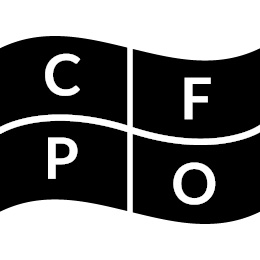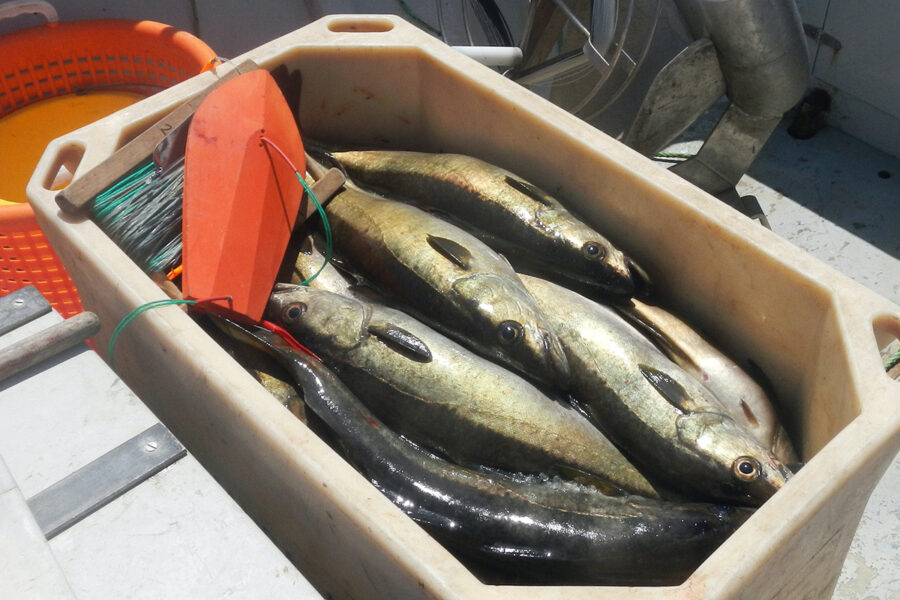
A new paper from the Cornish Fish Producers’ Organisation argues that a more holistic approach to pollack management could provide stability and a long-term future for the fishery
By The Cornish FPO
The 2024 zero TAC for pollack in area VII is causing extreme distress across fishing communities of South West England. Small and medium-sized fishing businesses are being forced to the wall – or into alternative fisheries where the increased fishing effort is likely to have adverse and unintended consequences.
The recovering bass fishery could now face a serious setback in recovery, the hake fishery is being forced to absorb more effort, and the crawfish fishery may now be forced into a boom- and-bust cycle.
The TAC decision on pollack, however, also raises wider issues. It has been known for some time that draconian management decisions of this type, taken in isolation, with severe social and economic impacts, tend to drive fishing behaviours that are not necessarily consistent with broader sustainability objectives.
Indeed, one objective in the Fisheries Act 2020 is explicitly framed to ensure that due consideration is given to the wider context in which decisions are taken – the ecosystem approach, accepting that an ecosystem involves environmental, social and economic elements.
No one is saying that pollack stocks are in robust good health. As usual when there is a radical change in the scientific perception of a stock, there are questions about the stock assessment and the data employed. These require attention. We have learned over the years that when stock biomasses decline, both fishing and environmental factors are usually at work. An ecosystem approach would not look at this change in isolation, and this could be expected to inform a more effective management response.
Reduced fishing effort on pollack will certainly be part of the picture, but an 87% reduction in the TAC – and then only as a limited bycatch – and the associated hardship and displacement have already had huge consequences for the fishing fleet. There is a responsibility on all parties to find a better path if one is available.
There is a reason the ecosystem approach has been included as an objective in the Fisheries Act and as an essential strand of the scientific work of the International Council for Exploration of the Seas (ICES). That reason is the essential interconnectedness of things. A change in one location or feature will bring change, intended or unintended, to other aspects of the same ecosystem.
In fisheries, over the years, hard-won experience has repeatedly demonstrated that policy initiatives can generate unexpected and sometimes seriously counterproductive consequences unless this interconnectedness is taken into account. ICES has developed ecosystem-based management to address exactly this broader vision and platform for action; it sees ecosystem-based management as the primary method of managing human activities affecting marine ecosystems.
These approaches to management of marine activities have been described by a number of organisations (FAO, CBD, Arctic Council, NOAA, CFP and MSFD) and applied in relevant legislation.
Certain key phrases illustrate the central tenet of these ecosystem approaches: management of human activities, consideration of collective pressures, achievement of good environmental status, sustainable use, optimisation of benefits among diverse societal goals, regionalisation, trade- offs, and stewardship for future generations.
The list of unintended consequences arising from past management decisions is legion. Examples include:
- Regulatory discards arising from draconian TAC reductions in mixed fisheries
- Displacement into already pressured fisheries such as bass
- The artificial dividing line at 10m, which for many years drove skewed fleet development
- A landing obligation that has led to an increase in regulatory discards.
The point of an ecosystem approach is to force decision- makers to consider the wider picture – environmental, social, economic and governance implications – before acting.
A management intervention to address the perceived decline in the biomass of pollack that is more aligned with an ecosystem approach would be multistranded, and could include:
- Strengthening the stock assessment through fisheries/ science collaboration to understand stock identity and range, and both biomass and fishing mortality trends, including catches by recreational anglers
- A multi-year recovery and management plan supported and informed by the fishing industry; this would replace the 87% TAC reduction with staged, more manageable TAC levels and accompanying measures to ensure that a reduction in fishing pressure is actually achieved.
- Identification and promotion of less blunt and more intelligent management measures. These could include spatial measures, including active avoidance measures and where possible improved selectivity measures,
A staged approach would allow fishing businesses time to adjust, whilst still moving towards the management objectives. It would also minimise adverse social and economic shocks that tend to generate unpredictable responses.
An alienated sector, out of sympathy with fisheries management measures, will not be committed to compliance, in the way it would if it were involved in the development and application of solutions. All this points to the need for an agreed framework for rebuilding the pollack stocks, whilst minimising the adverse consequences.
The announcement of financial support for part of the fleet will no doubt be welcomed by those who are eligible for the compensation scheme. However, whilst it is positive to see the government’s continued attention on finding solutions to the ongoing challenges facing pollack fishermen, focusing on long-term management plans, like the ecosystem approach, is how the government can ensure the longer-term stability of the pollack fishery.
This story was taken from the latest issue of Fishing News. For more up-to-date and in-depth reports on the UK and Irish commercial fishing sector, subscribe to Fishing News here or buy the latest single issue for just £3.30 here.
Sign up to Fishing News’ FREE e-newsletter here.
Main image credit: Phil Lockley








